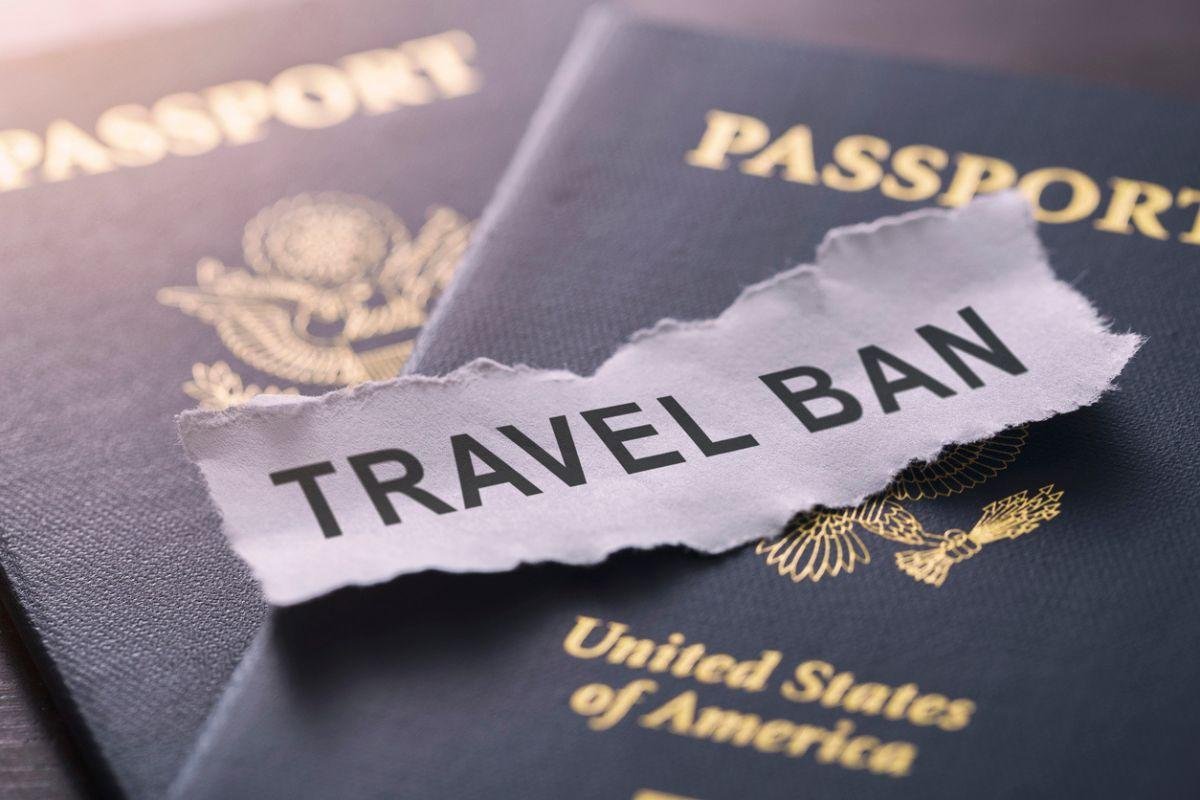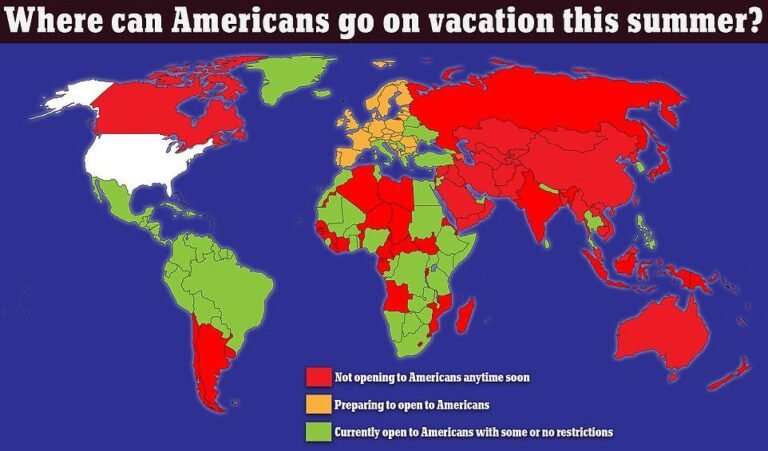In an increasingly interconnected world, travel is often viewed as a gateway to cultural exchange and personal growth. However, for U.S. citizens, certain destinations remain off-limits, either by government restrictions or the complexities of international relations. Understanding why some countries are inaccessible can shed light on broader geopolitical issues, security concerns, and international diplomacy. In this article, we’ll explore the various reasons behind these travel restrictions—from trade embargoes to health-related bans—and reflect on the impact such limitations have on the spirit of global exploration. While the reasons might potentially be rooted in politics and safety, it is indeed critically importent to consider the human stories behind the barriers, as countless individuals yearn to connect with the rich histories and vibrant cultures of these prohibited nations. Join us as we navigate this intricate landscape,fostering a deeper understanding of the challenges faced by travelers and the implications for U.S. citizens who dream of visiting distant shores.
Exploring Travel Restrictions for U.S. Citizens and the underlying Factors
for U.S. citizens contemplating international travel, navigating the complex web of travel restrictions can be a daunting task. Various factors influence why certain countries remain off-limits to American travelers, reflecting a mixture of political, safety, and health considerations. Countries such as North Korea, Iran, and Venezuela often impose travel bans or strict entry requirements due to ongoing diplomatic tensions, which can lead to a heightened risk for Americans abroad. Social considerations also play a critical role; nations experiencing civil unrest or notable crime rates may discourage or limit entry to protect foreign nationals. moreover, global health crises, such as the COVID-19 pandemic, have led to temporary travel bans or stringent health protocols, reshaping the landscape of international travel. Understanding these underlying factors allows travelers to make informed choices,ensuring that their journeys are not only memorable but also safe. Here are some key points to consider:
- Political Relations: Strained diplomatic ties can lead to travel restrictions for safety reasons.
- Security Issues: Countries facing internal conflict or significant crime rates often have travel advisories.
- Health concerns: Outbreaks of diseases may result in travel bans or require extensive health measures.
To further clarify the situation, the following table outlines recent travel advisory levels for some countries where U.S. citizens face restrictions:
| Contry | Travel Advisory Level | Reason |
|---|---|---|
| North Korea | 4 – Do Not Travel | Severe Risk of Arrest |
| Iran | 4 – Do not Travel | Possible Hostage Situations |
| Venezuela | 4 – Do Not Travel | Crime, Civil Unrest |
| afghanistan | 4 – Do Not Travel | Highly Unsafe Conditions |
By staying informed and assessing these critical aspects, travelers can better prepare for their adventures while remaining aware of the realities that govern their choices. As you explore travel opportunities on Gezify, remember that understanding these underlying causes can foster a more enriching travel experience, allowing you to venture into the world with knowledge and confidence.
Navigating Alternatives and Preparing for Future opportunities
As the world undergoes significant changes, many U.S. citizens find themselves reevaluating their travel options due to various restrictions imposed by certain countries.Understanding these barriers is essential for exploring alternatives and preparing for future adventures. The reasons behind these travel bans can be perplexing and vary widely, influencing the ability to visit specific destinations. Some prevalent factors include:
- Political Relations: Strained diplomatic ties can lead to restrictions. Countries with political disagreements may not welcome U.S. travelers, citing safety and national security.
- Health Concerns: Epidemics or pandemics can prompt nations to impose travel restrictions to protect public health, as witnessed during the COVID-19 crisis.
- Legal and Diplomatic Policies: Specific visa requirements and legal issues related to personal conduct can affect entry into certain countries.
- Security Risks: Nations experiencing unrest, terrorism, or high crime rates may discourage tourism for safety reasons.
For those contemplating their next getaway, it is crucial to stay informed about the ever-changing landscape of travel restrictions. A clear understanding of these limitations allows for proactive planning. Travelers might consider neighboring countries or regions that have positive relations with the U.S. and welcome American visitors. According to current data, potential alternatives could include:
| Choice Destinations | Why They Are Accessible |
|---|---|
| Canada | Strong diplomatic relations and accessible travel regulations. |
| Mexico | Popular travel destination with a shared border and cultural ties. |
| Europe (select countries) | Varied entry regulations, many allowing U.S. citizens with proper documentation. |
Ultimately, keeping abreast of geopolitical developments will empower U.S. citizens to make informed travel decisions. By understanding the underlying causes of travel restrictions, individuals can navigate the global landscape more effectively and open the door to new opportunities for exploration.
the travel restrictions faced by U.S. citizens highlight the complexities of global relations and governance. While it can be disheartening to learn that certain countries remain off-limits, understanding the underlying reasons—be it political tensions, safety concerns, or public health issues—can foster greater empathy and awareness. It’s essential to appreciate the delicate balance between freedom to travel and the necessity for national security and international diplomacy. As global citizens, we must stay informed and advocate for a more connected and understanding world, where barriers can be replaced with bridges.
